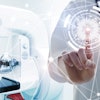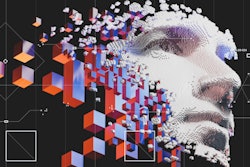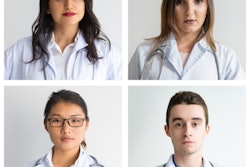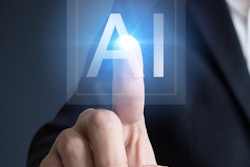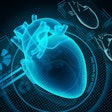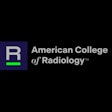
If results from a survey of medical students in the U.S. are any indication, the misperception that artificial intelligence (AI) will replace radiologists poses by far a bigger threat to the specialty than the technology itself, according to research published online June 27 in Current Problems in Diagnostic Radiology.
After surveying over 150 medical students from radiology interest groups at medical schools around the country, a research team led by Dr. Christian Park of Penn State Health Milton S. Hershey Medical Center in Hershey, PA, found that nearly half of the respondents were less enthusiastic about radiology due to AI.
"The significance of this is not to be understated in that half of potential candidates to the specialty feel as though there is limited opportunity due to an emerging technology such as AI," the authors wrote. "These sentiments have the potential to create downstream effects such as reduction in recruitment to the field of radiology or even medicine as whole."
To ascertain the perceptions of medical students in the U.S. about radiology and other specialties in relation to AI, the researchers sent out an anonymous, six-question survey to 32 radiology interest groups at U.S. medical schools. Responses were received from November 2017 to April 2018.
Of the 156 medical students who responded, over 75% agreed that AI would have a significant role in their careers, and 66% believed that diagnostic radiology would be the specialty that would be most affected by the technology. Importantly, 44% indicated that AI made them less enthusiastic about radiology.
The researchers also found that 57% of the students received their information about AI from online articles.
"As the majority receive information about AI from online articles, which may have negative sentiments toward AI's impact on radiology, formal AI education and medical student outreach may help combat misinformation and help prevent the dissuading of medical students who might otherwise consider the specialty," wrote Park and co-authors Dr. Paul Yi of Johns Hopkins Hospital in Baltimore and Dr. Eliot Siegel of the University of Maryland Medical Center in Baltimore.
The researchers also received 116 free-text responses in the survey. Of these, 30 (26%) were negative, 27 (23%) were positive, and 59 (51%) were deemed to be neutral/no impact.
"The negative comments in the free-response section were more specific, detailed, and knowledgeable, indicating a range of sentiments related to radiology in relation to AI," they wrote.
The researchers emphasized that the continued misperception of AI as a replacement for radiologists is much more of a threat to radiology than the development and integration of AI into the practice of diagnostic imaging. This could erode the enthusiasm of medical students for radiology and potentially reduce the amount of incoming talent into the field, they said.
"Radiology has always been at the forefront of technology utilization and education in medicine -- MRI, CT, and PACS to just name a small sample," the authors wrote. "Similarly, AI (and associated data science principles) should be integrated into medical education curricula to enable students to take advantage of this technology as well as dispel any incorrect notions about AI's deleterious effects on the field."

